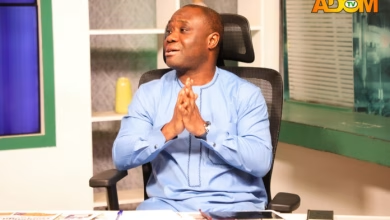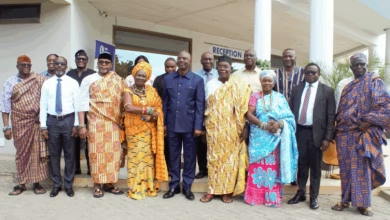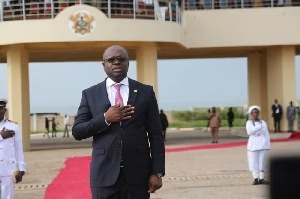“Your Vote is Priceless, Don’t Sell It – NCCE Tells Ghanaians”

- NCCE warns Ghanaians against vote buying and selling, citing its negative impact on the country's growth.
- Vote buying is illegal and punishable under Ghanaian law.
- Media outlets should avoid promoting violence and inflammatory language.
- Citizens are encouraged to prioritize their civic duties and promote transparency and accountability in governance.
The National Commission for Civic Education (NCCE) has issued a stern warning to Ghanaians to desist from the growing trend of vote selling and buying. According to Mr. Paul Tetteh, the Assin Fosu Municipal Director of NCCE, this practice is detrimental to the nation’s growth and development.
Mr. Tetteh explained that many political aspirants resort to purchasing votes to secure their positions, and subsequently recoup their investments through corrupt practices. He emphasized that no amount of monetary inducement should sway voters from exercising their civic duty with integrity.
Vote-buying, which involves offering gifts, money, or other incentives in exchange for votes during elections, is a pervasive practice in Ghana. Mr. Tetteh cited instances during the recent parliamentary and presidential primaries of the New Patriotic Party and the National Democratic Congress where the practice was prevalent.
The methods of vote-buying vary, ranging from distributing money and food items to promising employment opportunities, scholarships, and other financial incentives. Mr. Tetteh stressed that this practice is punishable under the Representation of the People Act, 1992 (Act 284), which explicitly prohibits the practice of vote buying.
Any person who offers, gives, or receives money or gifts in exchange for votes commits an offense punishable by law. Additionally, the Criminal Offences Act, 1960 (Act 29) also criminalizes bribery in elections, further clarifying the legal consequences of vote buying.
Mr. Tetteh cautioned the public to eschew vote buying and emphasized the necessity for the media to refrain from facilitating politicians’ use of their platforms for insults and incitement of violence. He identified the culture of insults, misinformation, exchange of money for votes, and ethnic divisive campaigning as threats to democracy in Ghana.
As the country prepares for the upcoming election, Mr. Tetteh called on the public to prioritize unity and constructive dialogue. He emphasized the significance of engagement in the decision-making processes to hold leaders accountable for their actions.
The NCCE director urged Ghanaians to recognize the value of their vote and resist any attempts to compromise their integrity. He stressed that the power to shape the nation’s future lies in the hands of the citizens, and it is essential to exercise that power responsibly.
Mr. Tetteh concluded by emphasizing the importance of civic education and awareness in promoting democratic values and principles. He encouraged Ghanaians to take an active role in promoting transparency, accountability, and good governance.
The NCCE has warned Ghanaians against the growing trend of vote selling and buying, emphasizing the legal consequences and the detrimental effects on the nation’s growth. The commission has called on the public to prioritize unity, constructive dialogue, and civic responsibility to ensure a peaceful and democratic election process.






